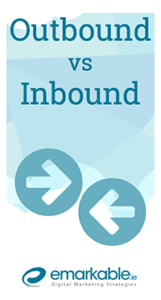Measuring social and how it impacts your business
Similar to all other online marketing activities, social technologies are inherently measurable. Whether you are looking at analysing all of your brand mentions across an overall sentiment rating or want to track each individual tweet or post, the measurability of your social activities is endless.
But just like any other marketing efforts you do online, social media measurements are more than just measuring web traffic (aka attention –although that is one part of it). It includes measuring engagement as well as influence. While the actual science of social media measurement is still being developed, it is pretty clear that you need to ensure you measure your social KPIs (key performance indicators) alongside your overall business goals.
Before You Start Measuring
Before you start measuring your social activities, it is recommended that you take a benchmark of where you are starting. Here is a quick list to follow.
- Make a record of your existing website analytics (visitors, referral links, SEO rankings, etc.)
- Record any current customer satisfaction scores you are tracking as well as customer ratings on external directories (ie: Yelp, Google Places)
- Make a note of any KPIs you currently track (cost of customer acquisition, advertising budget and allocation, average sale, average sales per month, etc.) to see how these change over time.
If you have already set up some social profiles and have people following you then make note of the attention numbers you already have (number of connections on LinkedIn, Facebook fans, blog subscribers and Twitter followers).
What to Measure (KPIs)
There are no standards when it comes to measuring your success on the social technologies, but below is a list of the top metrics you should be measuring if you are interested in learning how effective social media is in generating awareness for your company.
- Attention numbers – Tracking the actual number of connections you have is the most obvious way to measure your social media efforts. Be sure to track and compare your numbers over time, especially when you want to see the effectiveness of specific social campaigns you are running and how they have affected your attention numbers.
- Sentiment rating – This is a measurement of your brand mentions online broken down by favourability (which ones are positive, neutral and negative). This will give you a good indication of any increase in positive brand associations as well as raise any red flags that you need to crisis manage.
- Search rankings – Your social media activities can have a tremendous impact on the search rankings of your brand search terms. You will want to examine your search engine rankings each month to see how your brand visibility increases in the search engines.
- Incoming links – A well-placed blog post/video or image on a social site could generate a lot of traffic and links back to your web properties. Keep track of the number of incoming links for your web properties to see if social media impacts this at all.
- Sales – Why do anything if it isn’t going to have some sort of impact on sales? By driving your social audiences to unique landing pages that you are able to track and associate which social site they came from, you will be able to track how your social activities have impacted your sales.
- Leads – For those companies that aren’t able to process orders online, tracking your social activities to leads being generated to your business is a KPI you should definitely measure. Again this is easy to do if you set up unique landing pages specifically for your social sites that not only capture your leads, but can attribute a lead directly to the social site from which they converted.
- Customer engagement -It’s great to have customers following you on Twitter and Facebook, but are they actively engaged in what you are saying? Each month track your engagement levels by monitoring your retweet, share and repost numbers.
- Retention and repeat customers – As you actively engage with your consumer base through social media, you should see them become more loyal to your brand. This increase in brand loyalty should directly result in more repeat customers for your products and services. Watch your retention rates as you start participating in social media; they should rise over time. If they don’t, then you should look at whether you are providing any value to them through your social activities.
- Profits – If you are able to provide value to your customers through your social channels and increase their brand loyalty to you, then you should see your existing customer base generate more business for you (recommending your business to their sphere of influence). Getting more referral business from your customers will reduce your reliance on customer acquisition budgets. This means your cost of acquisition should decrease, which in turn means more money in your pocket at the end of the day.





